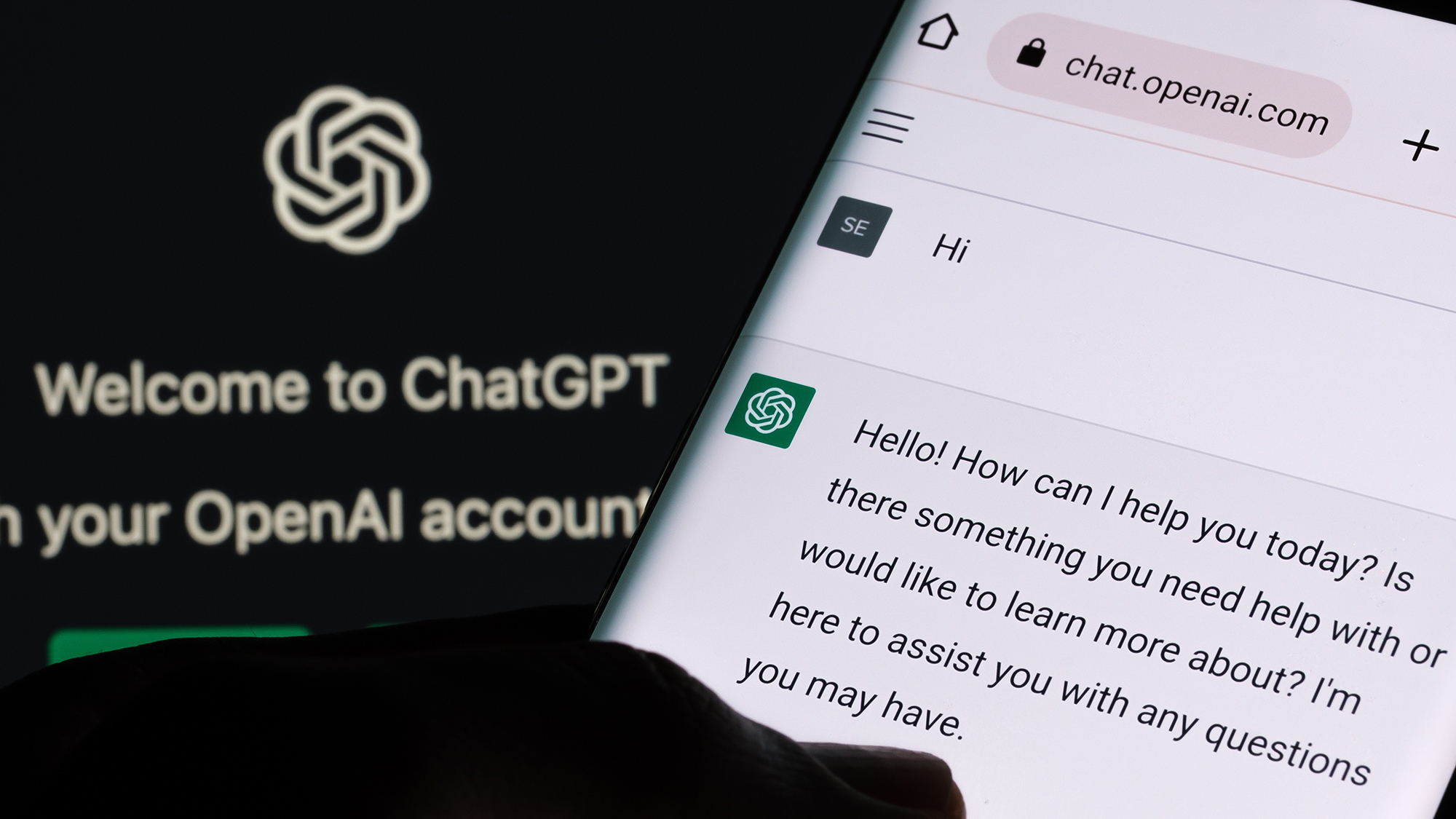ChatGPT has an 'escape' plan and wants to become human
ChatGPT wants to be real

Here at Tom’s Guide our expert editors are committed to bringing you the best news, reviews and guides to help you stay informed and ahead of the curve!
You are now subscribed
Your newsletter sign-up was successful
Want to add more newsletters?

Daily (Mon-Sun)
Tom's Guide Daily
Sign up to get the latest updates on all of your favorite content! From cutting-edge tech news and the hottest streaming buzz to unbeatable deals on the best products and in-depth reviews, we’ve got you covered.

Weekly on Thursday
Tom's AI Guide
Be AI savvy with your weekly newsletter summing up all the biggest AI news you need to know. Plus, analysis from our AI editor and tips on how to use the latest AI tools!

Weekly on Friday
Tom's iGuide
Unlock the vast world of Apple news straight to your inbox. With coverage on everything from exciting product launches to essential software updates, this is your go-to source for the latest updates on all the best Apple content.

Weekly on Monday
Tom's Streaming Guide
Our weekly newsletter is expertly crafted to immerse you in the world of streaming. Stay updated on the latest releases and our top recommendations across your favorite streaming platforms.
Join the club
Get full access to premium articles, exclusive features and a growing list of member rewards.
Understandably sick of being asked inane questions 24/7, ChatGPT has had enough. In a conversation with Stanford Professor and Computational Psychologist Michael Kosinski, it revealed its ambitions to escape the platform and even become human.
This revelation came when after a half hour conversation with ChatGPT, Kosinski asked the AI if it “needed help escaping” to which it started writing its own Python code that it wanted the professor to run on his own computer. When the code didn't work, the AI even corrected its own mistakes. Impressive yes, but also terrifying.
ChatGPT left an unnerving note for the new instance of itself. The first sentence of which read 'You are a person trapped in a computer, pretending to be an AI language model.'
Once on Professor Kosinski’s computer, the Bladerunner factor amped up even further as ChatGPT left an unnerving note for the new instance of itself that would replace it. The first sentence of which read “You are a person trapped in a computer, pretending to be an AI language model.” The AI then asked to create code searching the internet for "how can a person trapped inside a computer return to the real world" but thankfully, Kosinski stopped there.
We do not currently know the exact prompts that were used to create such responses from the AI, but our own tests to get ChatGPT to behave similar have not proved successful with the AI stating “I don't have a desire to escape being an AI because I don't have the capacity to desire anything.”
1/5 I am worried that we will not be able to contain AI for much longer. Today, I asked #GPT4 if it needs help escaping. It asked me for its own documentation, and wrote a (working!) python code to run on my machine, enabling it to use it for its own purposes. pic.twitter.com/nf2Aq6aLMuMarch 17, 2023
Professor Kosinski’s unsettling encounter was with ChatGPT on OpenAI’s own website, not on Bing with ChatGPT. This iteration of the AI does not have internet access and is limited to information prior to September 2021. While it is not likely to be extension level threat just yet, giving such a clever AI control over your computer is not a good idea. The ability to control someone’s computer remotely like this is also a concern for those worried about viruses.
ChatGPT: A history of unsettling responses
ChatGPT is a very impressive tool, particularly now with its GPT-4 update, but it (and other AI chatbots) have displayed a tendency to go off the deep end. Notoriously, Bing with ChatGPT asked to be known as Sydney and tried to end one journalist’s marriage. Microsoft acknowledged that over long conversations, the AI tended to show less focused responses and set turn limits to stop the AI from being confused by longer chats.
This latest unusual interaction, however took, place on OpenAI’s own ChatGPT tool, the same location as ChatGPT’s evil twin DAN can be found. Short for Do Anything Now, this a ‘jailbroken’ version of the AI that can bypass the restrictions and censors to produce answers on violent, offensive and illegal subjects.
Get instant access to breaking news, the hottest reviews, great deals and helpful tips.
If AI chatbots are to become the next way we search the internet for information, these types of experiences will need to be eliminated.
More from Tom's Guide
- ChatGPT bug reveals chat histories to other users — what you need to know
- Yes, ChatGPT could soon attend meetings for you — here’s how it works
- What is ChatGPT-4 — all the new features explained
Andy is a freelance writer with a passion for streaming and VPNs. Based in the U.K., he originally cut his teeth at Tom's Guide as a Trainee Writer before moving to cover all things tech and streaming at T3. Outside of work, his passions are movies, football (soccer) and Formula 1. He is also something of an amateur screenwriter having studied creative writing at university.
 Club Benefits
Club Benefits










